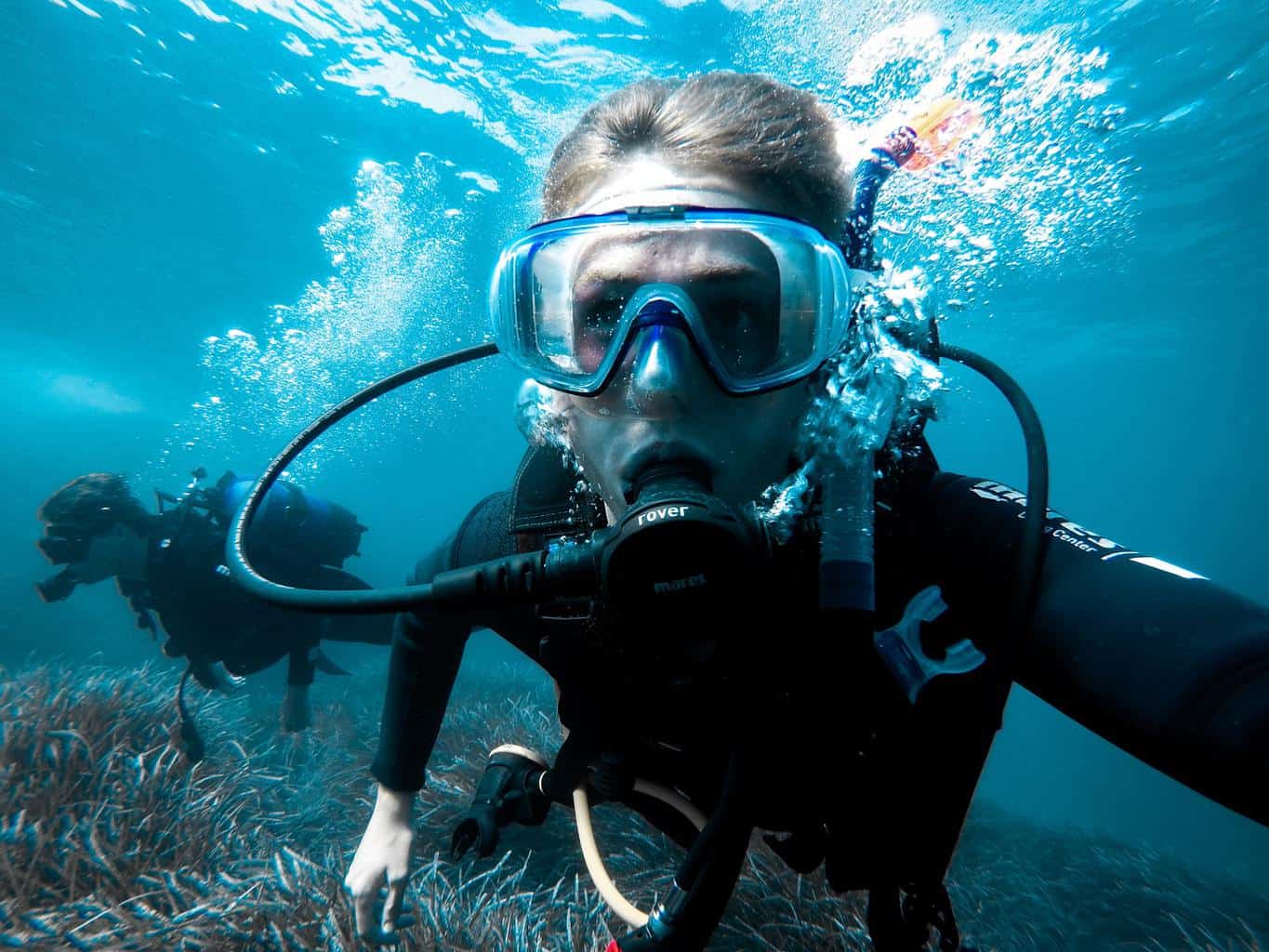If you haven’t tried scuba diving before, the idea of strapping a tank of compressed air to your back and heading underwater can probably, quite understandably, sound a bit alarming.
It’s quite natural to have concerns and be interested to know if there are any adverse health effects of scuba diving.
As well as the risks, this article will show you how to avoid them and let you in on some of the benefits scuba diving has to offer.
You will see that so long as you follow the training, dive sensibly within your limits, and pay attention to maintaining your general health and fitness, that no, recreational scuba diving isn’t bad for your health.
On the contrary, it can be wonderfully enjoyable and even good for you.
- What Are the Side Effects of Scuba Diving?
- What Are Some Potential Scuba Diving Accidents?
- Is Scuba Diving Bad for Your Heart?
- Is Scuba Diving Bad for Your Lungs?
- What Medical Conditions Can Stop You From Scuba Diving?
- Is Scuba Diving Good for Your Health?
- What Are the Benefits of Scuba Diving?
- What Are the Long Term Effects of Scuba Diving?
- Conclusion
- You Might Also Like…
Disclosure: this post contains affiliate links (clearly marked with ), which means we may earn a commission if you buy something through them, at no additional cost to you.
What Are the Side Effects of Scuba Diving?
There are no specific known side effects caused by recreational scuba diving, except perhaps the financial expense caused by falling in love with what can be a costly hobby.
However, as with any more extreme activity, there are risks of injury associated with scuba diving that we can discuss.
Scuba diving has an excellent safety record, and serious medical problems are not common, given the millions of dives carried out each year worldwide.
When incidents do unfortunately happen, it is often the case that an error on the divers part causes them.
It may not have been a foreseen error, caused by deliberate negligence.
After all, accidents can happen without fault, or it can be that problematic, undetected underlying medical conditions can also cause them.
Whether caused by deliberate action or by complete accident, injury risks exist in diving and need to be understood to safely partake in the activity.
In the absence of an existing medical condition, most incidents can be avoided by diving carefully and staying well within the divers’ training and experience limits.
What Are Some Potential Scuba Diving Accidents?
Squeezes
A “Squeeze” Barotrauma, a pressure-related injury, is the most common type of scuba diving accident.
Usually, this is caused by a diver descending too quickly and not equalizing their ear, sinus, or mask air spaces early or often enough.
The difference between the water pressure and that of the air in the internal and mask air spaces as the diver goes deeper can cause pain and potential injury to the ears, sinuses, and eyes.
Squeezes can be avoided by executing careful equalization techniques when descending and by maintaining good buoyancy control.
Never dive with a cold or when congested as this can make equalization difficult or impossible.
In a squeeze, a diver must ascend slowly to reduce the pressure and try to equalize gently.
If equalization isn’t possible, they must end the dive. Forceful equalizations can cause severe damage to the ears and sinuses.
Severe squeezes can be associated with hearing loss, tinnitus, and vertigo.
Decompression Sickness
Probably the most famous scuba diving injury, Decompression Sickness (DCS), also known as “The Bends,” is the term for injuries and adverse effects caused by the nitrogen gas that we have absorbed during a dive coming out of solution too quickly and forming bubbles in our tissues or bloodstream.
DCS can be extremely dangerous and even deadly.
Signs and symptoms of DCS can range from mild such as a rash or joint pain, to more severe such as loss of balance or vision, unconsciousness, or worse.
Assuming good general health, DCS is avoided by diving conservatively and avoiding factors that make you more likely to be susceptible, for example, dehydration, obesity, diving when overtired, and smoking.
Nitrogen Narcosis
Nitrogen narcosis describes the psychological sensations a diver feels when at depth due to the increased pressure of the gas they are breathing.
Signs and symptoms of narcosis might include feelings of euphoria, lack of good judgment, and problems with coordination.
Left unchecked, narcosis can cause serious accidents.
The solution is to avoid diving deeply.
In most people, narcosis is felt when diving deeper than 100ft / 30m.
Narcosis is one reason why new divers have depth limits that are only extended with experience and additional training.
Oxygen Toxicity
Oxygen toxicity is caused by breathing oxygen too deep underwater.
Normal air used for diving is effectively made up of 21% oxygen and 79% nitrogen.
The oxygen part can be extremely dangerous underwater if breathed at too great a depth.
Luckily, this depth limit for oxygen in normal air is over 180ft / 55m, so it isn’t an issue for a recreational diver.
Oxygen toxicity is an extreme concern for deep, technical divers as it can cause convulsions underwater, which can be extremely dangerous.
Lung Injury
If a diver holds their breath underwater and ascends towards the surface, they risk expanding their lungs.
The trapped air will expand in the lungs as the diver swims up, and the surrounding water pressure decreases.
This can cause severe lung injuries.
However, it is easily managed by maintaining good buoyancy control underwater and by following the number one rule of scuba diving:
Never hold your breath underwater while scuba diving. Always breathe continuously.
Drowning
The most common cause of scuba diving death is actually drowning at the surface.
Whether underwater or at the surface, good practices to prevent this risk can include:
Surface:
- Maintaining positive buoyancy with the BCD filled with air appropriately.
- If necessary, dropping the weight system to increase buoyancy.
- Keeping a snorkel or, if needed, the regulator in the mouth to stop water from being breathed accidentally.
- Keeping the mask on.
- Remaining calm.
- Not overexerting when swimming.
Underwater:
- Stay within the divers training, experience, and physical limits.
- Maintaining good buoyancy control
- Regularly check divers own and buddy’s air supply.
- Maintaining good buddy contact.
- Don’t overexert underwater.
And of course, don’t dive unless you’re medically cleared safe to do so.
Equipment Failure
Scuba equipment, like anything else, can fail unexpectedly.
Equipment related accidents can be avoided by following these suggestions:
- Check all equipment carefully before use.
- Carry out a full buddy check before a dive to make sure that everything is working correctly and that in the event of an incident, you can help your buddy or they can help you.
- Maintain good buddy contact during the dive so that you and they are close enough to help.
- Make sure that you maintain and store your equipment correctly.
- Occasionally practice the emergency skills taught in your diver courses to stay fresh.
Aquatic-Life Injury
The most common causes of injury from aquatic life are accidental contact or the animal defending itself.
Take care where you put your hands and feet when entering and exiting the water and during the dive.
Remember that responsible scuba divers shouldn’t touch anything underwater.
Don’t touch, tease, harass or otherwise provoke aquatic life, and you are far less likely to have any problems.
Take the time to learn about aquatic life injuries and how to treat them just in case something accidental happens like an unplanned coral contact sting.
These can be very unpleasant if left untreated or not treated correctly.
Sunburn and Dehydration
Finally, we get to the most common cause of missed days diving for holiday divers.
Getting sunburnt or getting dehydrated by not drinking enough water between dives.
Sunburn isn’t fun, especially if you need to get into a wetsuit for your next dive.
Similarly, the effects of dehydration, even mild, can be quite unpleasant and make scuba diving a no-no.
Think carefully and stay in the shade and keep drinking the water if you want to enjoy diving.
Is Scuba Diving Bad for Your Heart?
The physical exercise that scuba diving gives is good for your overall health, including heart health.
However, the activity of diving can place increased demands on the heart, the effects of which can depend on the divers underlying health.
Diving under normal conditions requires little exertion.
However, it is possible that during any dive, conditions and circumstances can change and give rise to the need for spontaneous and vigorous activity.
Hence an individual must have sufficient “reserve cardiac capacity” to cope if needed.
As well as assessing general heart health, this is the main reason divers are questioned on their ability to carry out moderate exercise before being approved to dive.
Just being underwater does put an increased strain on the heart due to the increased surrounding pressure and temperature changes.
Blood will shift from the limbs and become more concentrated in the body’s central areas, so the heart has to work harder to move it.
While this alone is not significant in a healthy individual, if someone is already at their exercise limit in day to day life, then the added stresses of diving may cause serious problems.
With the above in mind, some heart problems are considered significant enough to not allow a subject to scuba dive.
For a normally healthy person, scuba diving might be beneficial to heart health.
To someone with existing or underlying heart problems, scuba diving could be too risky.
Is Scuba Diving Bad for Your Lungs?
As with the heart, diving is not specifically bad for the lungs.
Similarly, they have to work harder when scuba diving than above the surface, so identifying any lung (pulmonary) problems is also essential.
When scuba diving, the gas you breathe is of increased pressure and density to match the water’s pressure surrounding you.
Denser air is harder to breathe, so your lungs have to work harder to move it in and out.
Additionally, the blood that moves to the center of the body when diving makes the lungs a little stiffer and requires more breathing effort.
As with the heart, this effect does not present issues to someone of normal health, but a doctor must investigate any existing lung issues before diving commences.
In general terms, the only thing that a healthy diver has to remember to do to keep their lungs happy is to breathe at all times and never hold their breath.
What Medical Conditions Can Stop You From Scuba Diving?
The Undersea and Hyperbaric Medical Society (UHMS) have developed a comprehensive health screening system to assess scuba diving suitability.
This is used by diving training agencies, including PADI, SSI, and NAUI, amongst others, and isn’t there to stop people from diving.
Indeed, amongst the stated aims are to:
“Allow as many individuals to dive as reasonably possible.”
Divers can use the UHMS evaluation form to check for medical conditions that could be problematic and need to further discuss with a doctor before diving.
The UHMS has produced an extensive accompanying document that gives physicians specific advice on judging conditions:
“The risks associated with diving may be increased by certain physical conditions, and the relationship to diving may not be readily appreciated by candidates.
A physical examination for diving focuses on conditions that may put a diver at increased risk for decompression sickness, pulmonary overinflation with subsequent arterial gas embolization, and other conditions such as loss of consciousness, which could lead to drowning.
Additionally, divers must be able to withstand some degree of thermal stress, the physiological effects of immersion, and have sufficient physical and mental reserves to deal with normal diving and possible emergencies.”
Medical conditions that can stop you from scuba diving include the following:
Behavioral Health
- Active major depression, bipolar, or psychotic disorder.
- History of panic attacks.
- Drug or alcohol abuse.
- Severe intellectual handicap.
- Claustrophobia or agoraphobia.
Cardiovascular System
- Coronary artery disease.
- Heart failure.
- High blood pressure.
- Paroxysmal arrhythmias causing unconsciousness or impairment of exercise capacity.
- Poor exercise capacity of apparent cardiac origin.
- Congenital cardiac disease.
- Pacemakers.
Gastrointestinal
- Colostomy.
- Stomach or intestinal ulcers or ulcer surgery.
- Frequent heartburn, regurgitation, or gastroesophageal reflux disease (GERD).
- Active or uncontrolled ulcerative colitis or Crohn’s disease.
Hematological
- Sickle cell disease.
- Leukemia.
- Hemophilia / Impaired coagulation.
- Recent blood transfusion.
- Recent thrombotic episodes.
- Anticoagulant drugs of any kind.
Metabolic and Endocrinological
- Diabetes.
- Pregnancy.
- Hormonal excess or deficiency.
- Obesity.
Neurological
- Head injury with loss of consciousness.
- Persistent neurologic injury or disease.
- Recurring migraine headaches, or take medications to prevent them.
- Blackouts or fainting (full/partial loss of consciousness).
- Epilepsy, seizures, or convulsions OR take medications to prevent them.
Orthopedic
- Recurrent back problems that limit everyday activity.
- Back or spinal surgery.
Otolaryngological
- Sinus surgery.
- Ear disease or ear surgery, hearing loss, or problems with balance.
- Recurrent sinusitis.
- Eye surgery.
Pulmonary
- History of pneumothorax.
- Impaired exercise performance due to respiratory disease.
- Respiratory impairment secondary to cold gas breathing.
- Asthma, wheezing, severe allergies, or congested airways that limits physical activity/exercise.
- History of immersion pulmonary edema or restrictive disease.
- Sleep apnea.
- Bronchitis.
- A diagnosis of COVID-19.
This is not a comprehensive list, and professional medical advice should be sought before diving.
Be aware that many medications can act differently in the body when under the increased pressure experienced when scuba diving.
You should check the suitability of any medications before diving with your doctor.
It’s important to remember that your health and fitness may change over time and almost certainly will as you get older.
Indeed, the questionnaire aims explicitly questions relating to smoking, high blood pressure, high cholesterol levels, and family history of heart attack, heart disease, and stroke to those divers over the age of 45.
If you experience any health changes, you should get checked over by a doctor to make sure you’re still fit to dive.
It’s worth noting positively that often experienced hyperbaric (diving) doctors can work with a patient to make changes to medications or provide advice for lifestyle changes that can enable diving.
Is Scuba Diving Good for Your Health?
Everything you’ve read so far might sound rather negative and potentially put you off scuba diving.
But scuba diving presents many health benefits when carried out with suitable caution.
Diving can be excellent exercise, with approximately 300-600 calories burnt per hour, depending on water temperature and conditions.
While most dives are very relaxing, they still involve increased activity combined with low joint stress levels.
The increased resistance to movement by water compared to air can build muscle strength and tone and increase flexibility.
Many divers will see strength improving in their legs and core, which can assist with good posture and back health.
Any increase in an individual’s physical exercise is highly likely to give positive overall health benefits.
It is suggested that divers are less likely to smoke or be obese and may be more likely to visit a doctor each year compared to non-divers
Additionally, the relaxation and feelings of stress relief that diving brings can be hugely beneficial to mental wellbeing.
What Are the Benefits of Scuba Diving?
As well as providing general physical health and mental wellbeing benefits already discussed, scuba diving can offer several other advantages.
Beginning scuba diving as a hobby opens up considerable opportunities to travel and meet people.
Often diving holidays will involve visiting warm and exotic tropical parts of the world, giving the chance to experience new places.
Encountering life underwater can provide excitement, education, and fascination.
Extending diving to include underwater photography can add artistic endeavor and interest.
Diving is, by and large, a very social activity.
As well as your diving buddy, people met on dive trips or at dive clubs are usually like-minded with common interests even outside of diving.
Diving gives a wonderful chance to meet new people and to share experiences that often forge friendships for life.
What Are the Long Term Effects of Scuba Diving?
There are no proven adverse long-term effects from recreational scuba diving.
The Divers Alert Network (DAN) comment that:
“…the world is filled with many divers who have been diving for over 40 years who show no unusual deterioration in their abilities which would affect their quality of life.”
Scuba diving is a relatively young sport, so all divers should keep up to date with the latest developments, dive cautiously and maintain their fitness and health.
Indeed, in the long term, the passion for scuba diving can be a great motivation for individuals to look after their health and maintain fitness to continue the activity for as long as possible.
Conclusion
We can conclude that carried out with the appropriate levels of caution and maintaining good health and fitness, recreational diving cannot be regarded as being specifically bad for your health.
Quite the opposite, scuba diving can positively influence many aspects of divers’ health, provide physical exercise, encourage the maintenance of fitness and good health, and enhance mental wellbeing and happiness.
You Might Also Like…
-

How Do Scuba Divers Drink Water? 5 Possible Ways (+7 Tips)
-

How Long Can Scuba Divers Stay Underwater? (+9 Limiting Factors)
-
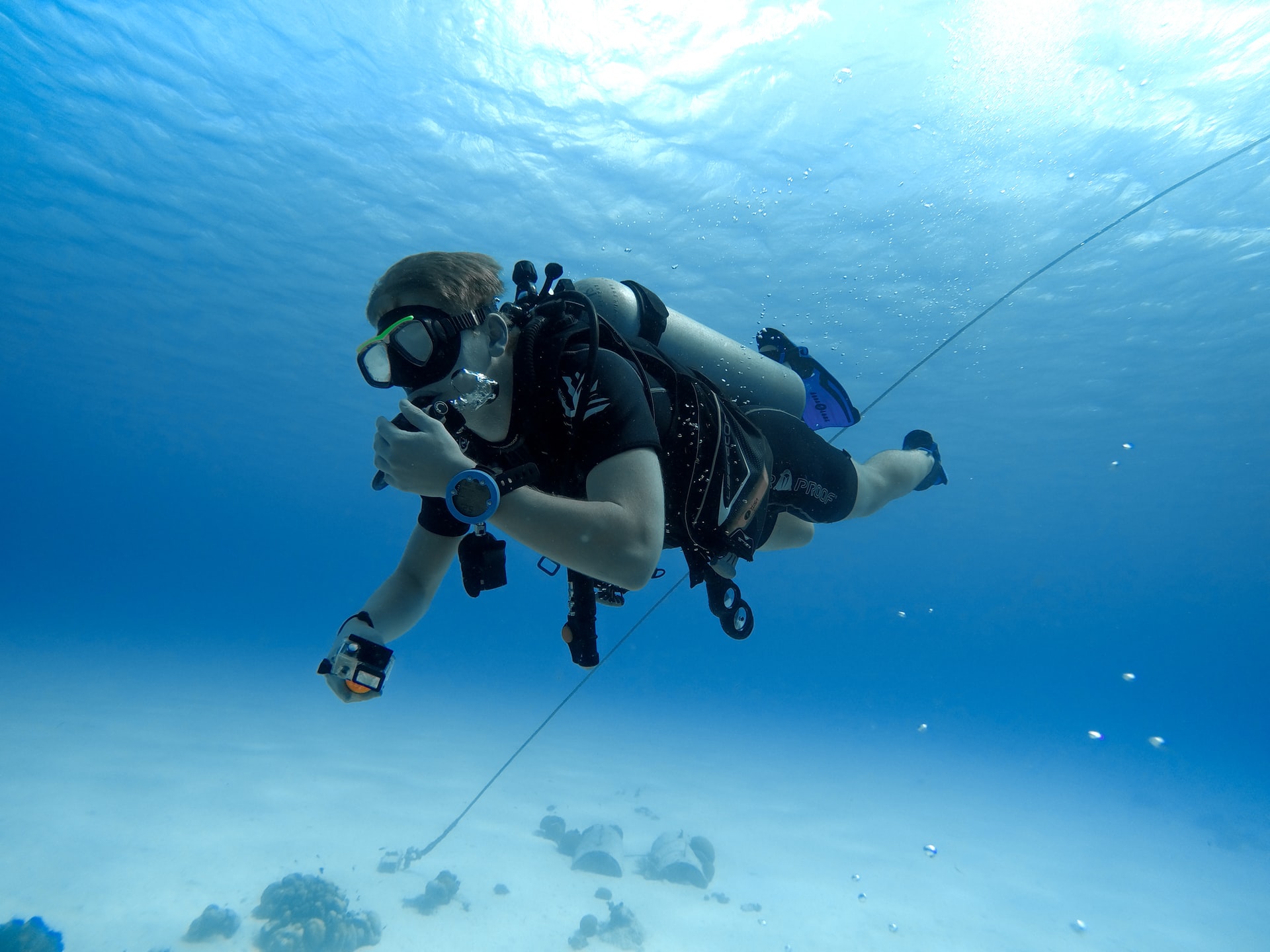
Are Scuba Divers Athletes? All the Facts (+New Competitive Forms)
-
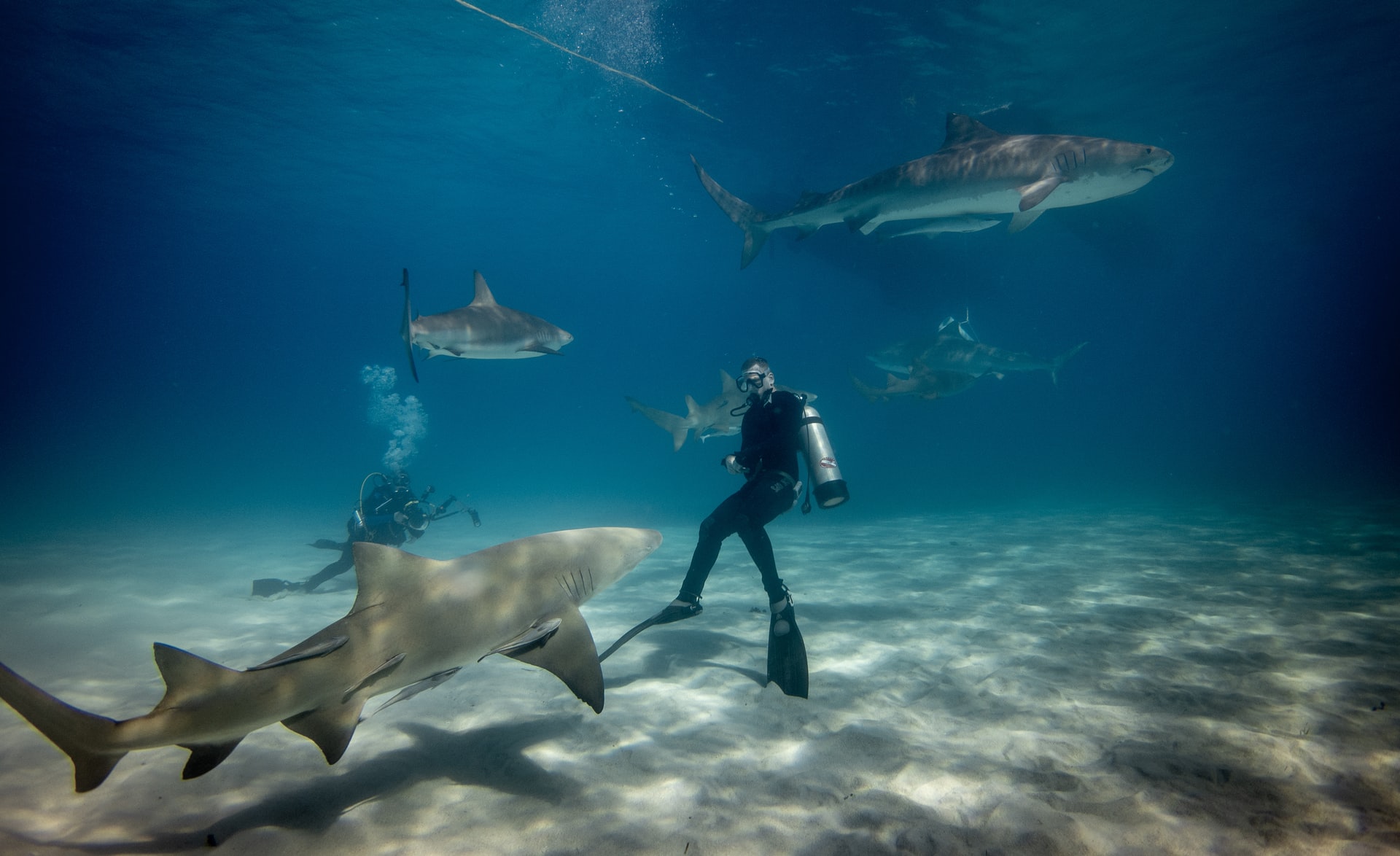
Are Sharks Scared of Scuba Divers? (What Every Diver Must Know)
-
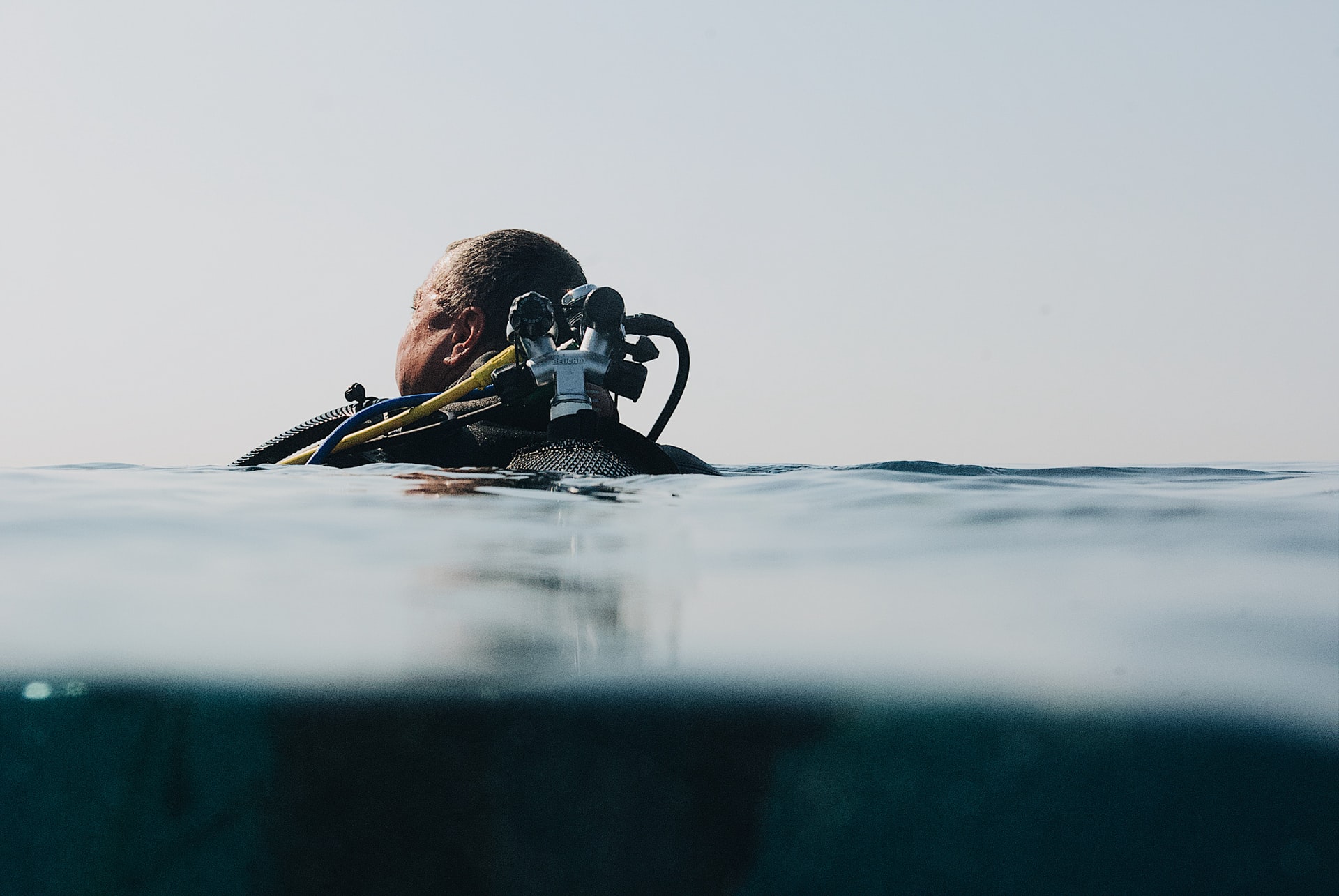
Who Should Not Scuba Dive? 17 Reasons (Every Diver Should Know)
-
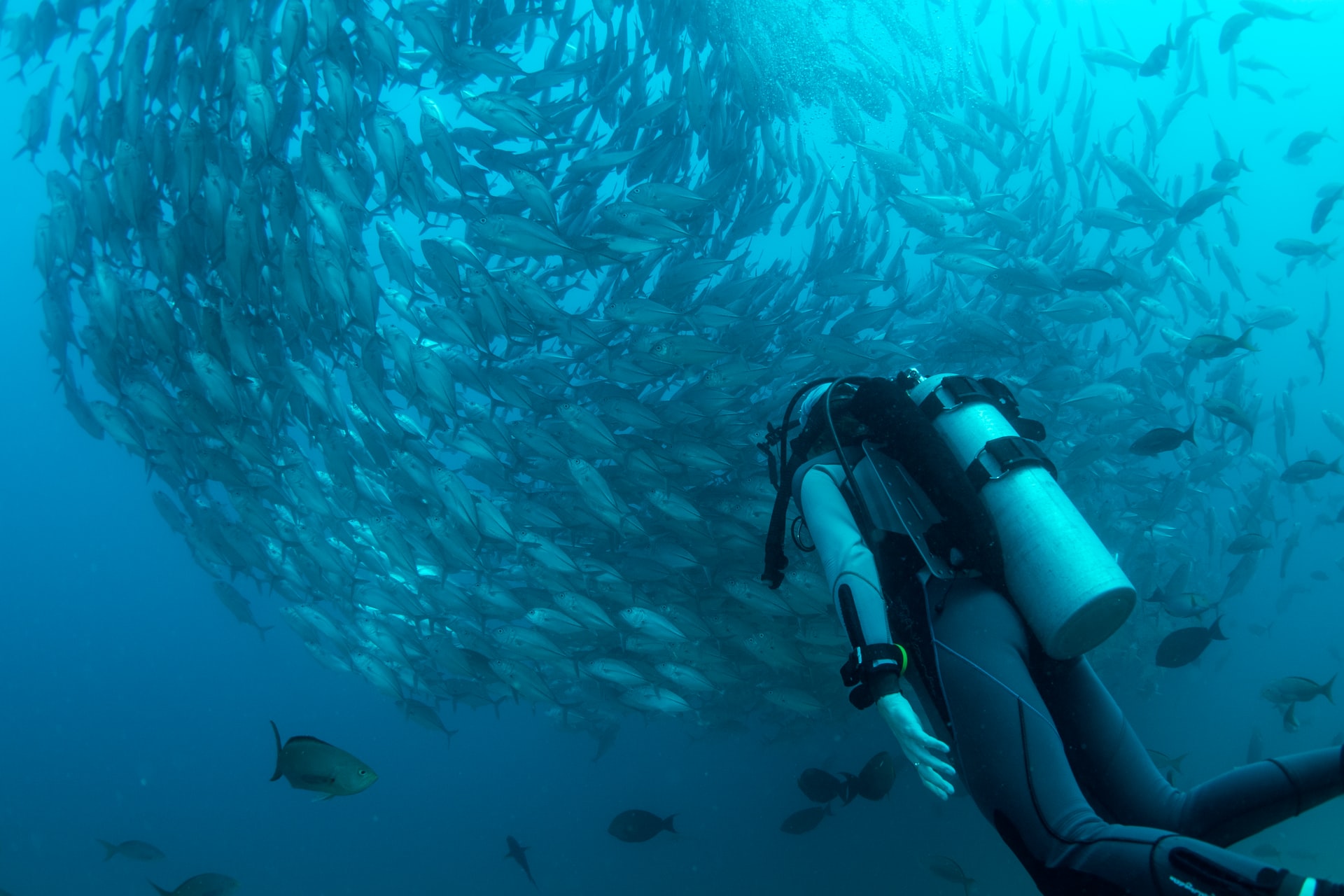
Should I Be Scared of Scuba Diving? 8 Common Fears (Debunked)
-
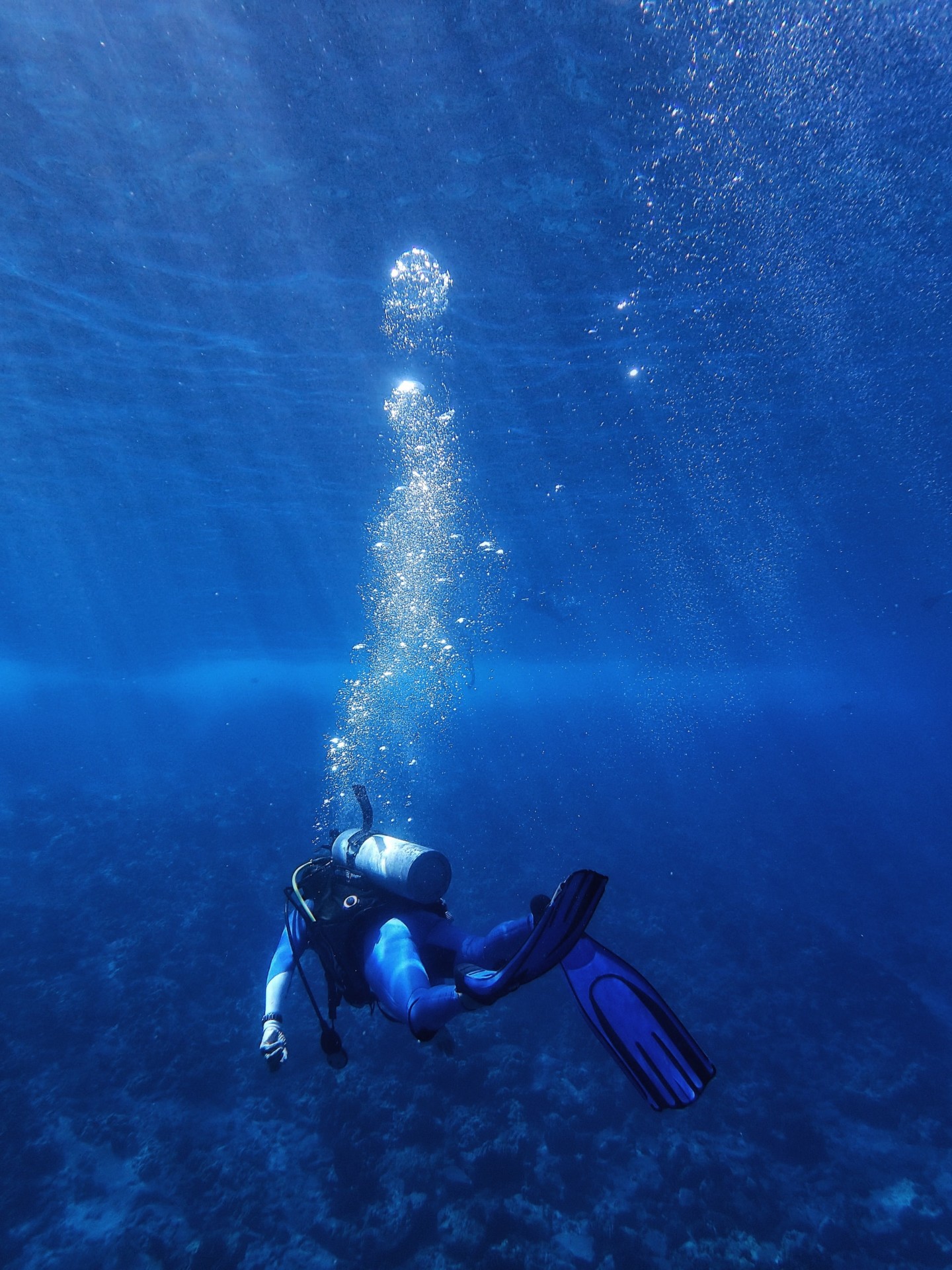
Why Do Scuba Divers Use More Air at Depth? (+4 Practical Tips)
-
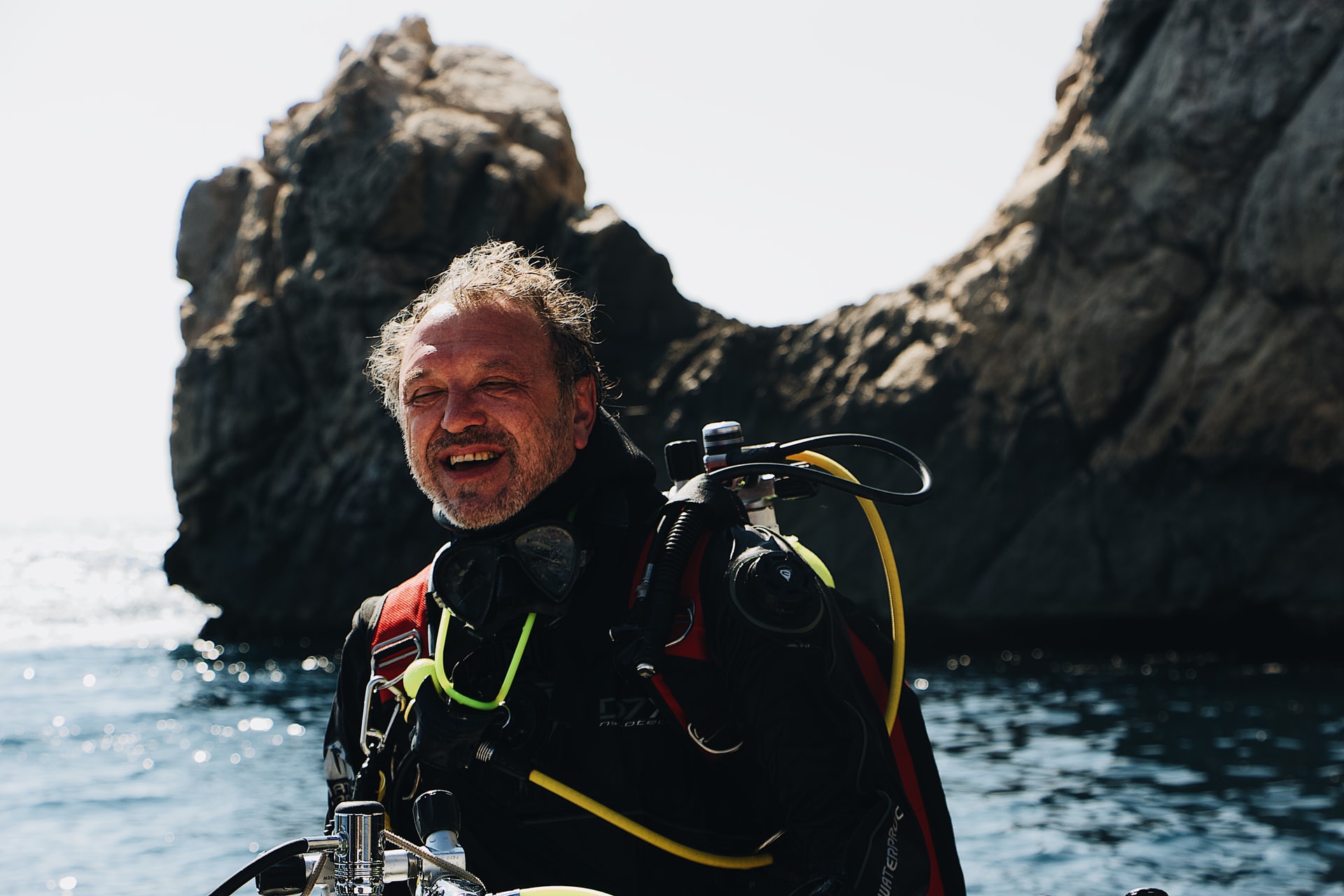
At What Age Should You Stop Scuba Diving? (+9 Tips for Older Divers)
-
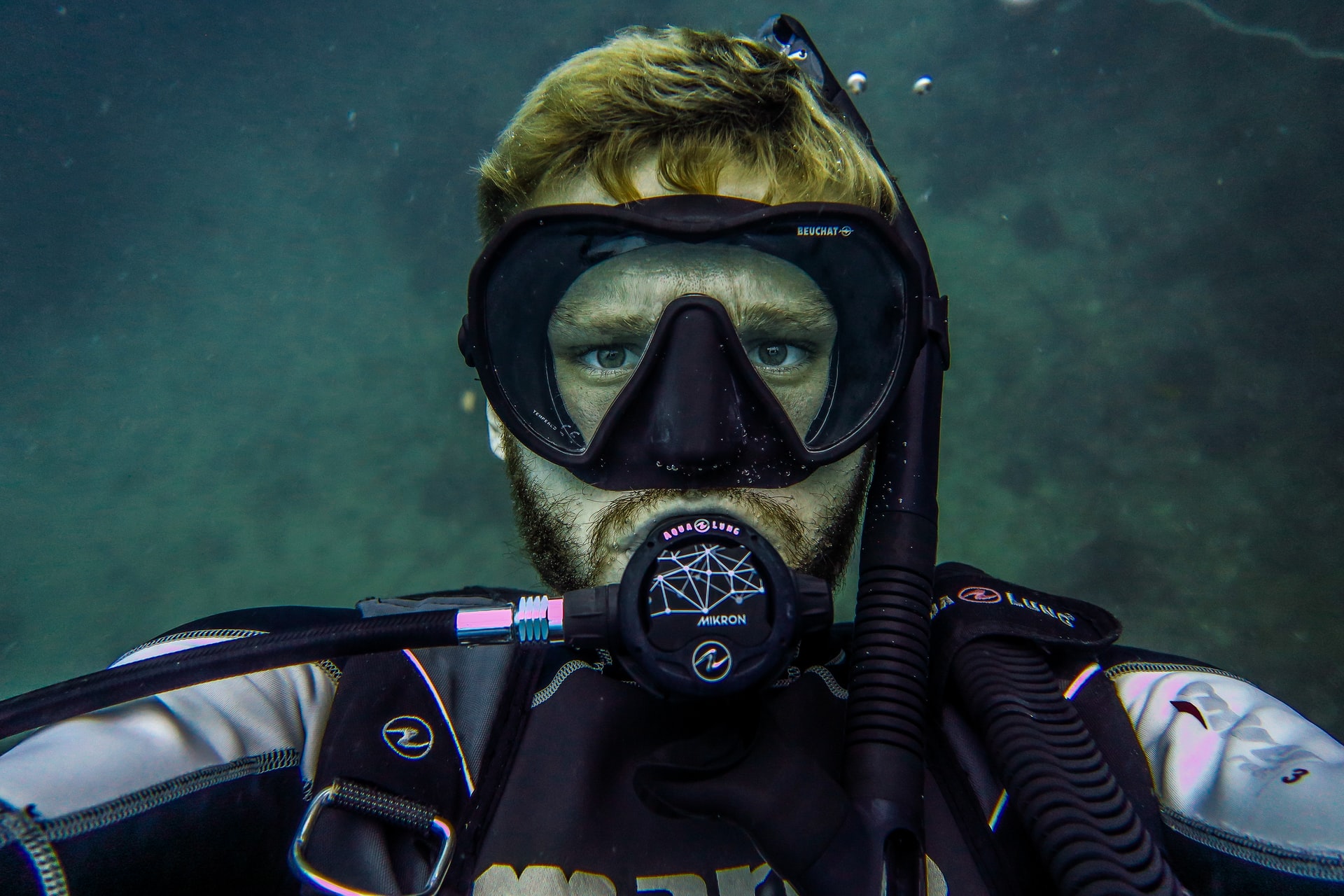
Should I Shave Before Scuba Diving? Crucial Facts (+9 Helpful Tips)
-
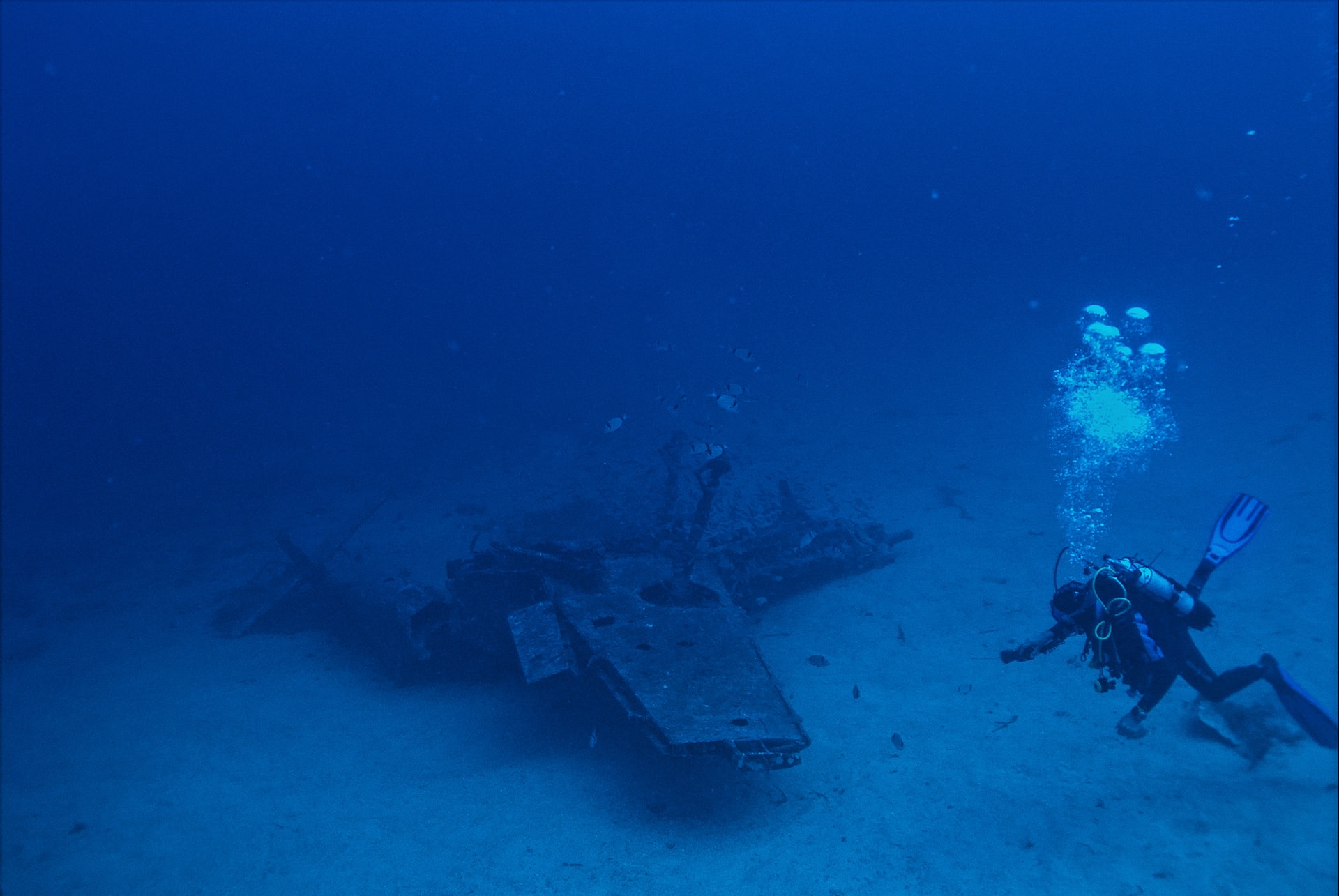
Why Do Scuba Divers Use Helium? (+Its Pros & Cons)
-
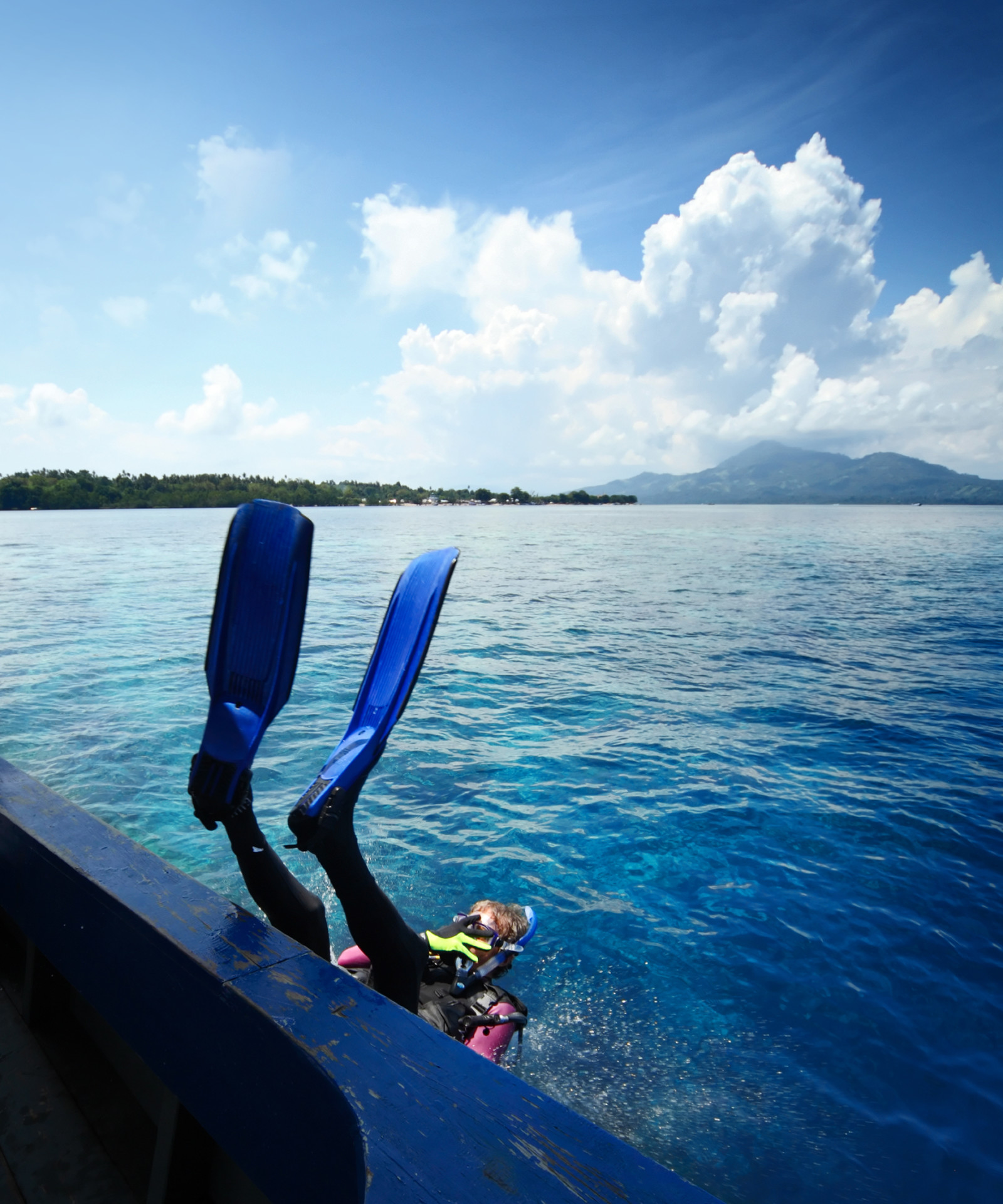
Why Do Scuba Divers Go in Backwards? (+3 Alternative Entries)
-
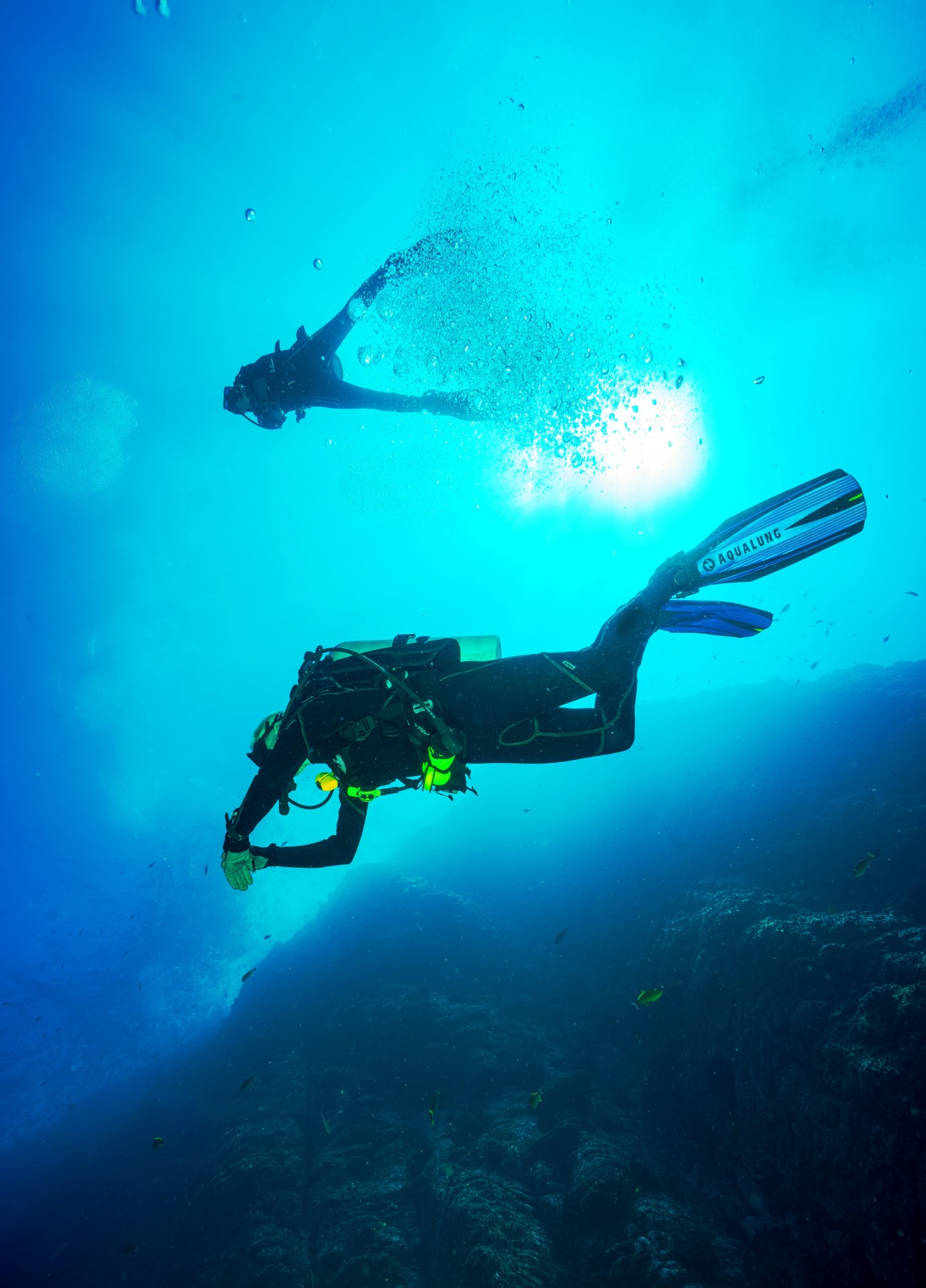
How Do Scuba Divers Sink and Float? (+Tips to Get It Right)

